I was on the fence purchasing an Ergatta for a while but when the Lite came out with the $500 difference it was just enough to get me off the fence. The Lite was right in that competitive price range with similar options I was looking at from others but the digital experience, and timeless product design just stood out. We love the broad set of races, workouts, and push programs Ergatta adapts to you and the icing on the cake is that it's a beautiful product that blends into our home. We are addicted to it!
I have had my Ergatta lite for a couple of months now, and I could not be more pleased with it. Many years ago, I rowed on my college crew in fours and eights. I have tried other ergometers at home or in gyms through the years, but none of them gave me the experience of actually being on the water. This rower gave me immediate sense memories of my college rowing days. The sound and feel of the water are perfect, especially when combined with the open water videos. The games are great and help build confidence in stroke rates, power, and rhythm. I love all of the on-screen feedback on my stroke and the connection to my Apple Watch for heart rate. This is also a beautiful piece of equipment that I am proud to show off in my home both when it is down for rowing and stored upright. I cannot recommend it highly enough. If you are on the fence, please place an order. You will not be disappointed.
I have had the rower for two months and I am solidly addicted. I have done the classes, challenges, echo programs and free rows with scenery. The echo programs are my favorites. I constantly compete against my last score. I do wish there was an easy way to see on the echo programs the strokes per min I will get up to. I would like to see more 34s but I may have not found them yet. You cannot go wrong by purchasing this machine. My treadmill is being retired!!!
I received the Ergatta rower as a gift. I never did any rowing in my life, but I am addicted to it now. I have been rowing the Ergatta for almost 2 months. There are many things to try such as to be competitive, or just rowing at my own pace, too. The AI coach is great for me to check my form.
Also, the Ergatta Community in the Facebook group is fantastic for support, information on technique and form, and fun events. I am inspired by the Ergatta community. It's just nice to see what others are up to, to keep it interesting.
We had an issue during shipping. We contacted Ergatta customer service, they followed up and solved problem timely manner. The bottom line, customer service is great. The design of the machine is awesome, and USA made!
This rower is so easy and fun to use! With so many options on workouts (from simple to hard and everywhere in between), your possibilities are endless! From rowing with scenic views to games to challenges, there is definitely something for everyone to enjoy while using this machine!







